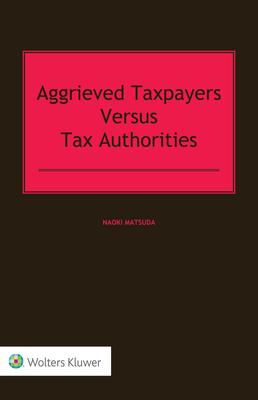National tax authorities often find that improving taxpayers' access to justice tends to increase the number of tax disputes, giving rise to a need to strike a workable balance between these two challenges. This extraordinarily useful and informative book looks into the status of tax disputes of some representative countries and their historical and recent moves to attain such a balance. The countries highlighted are Japan, the United States (U.S.), the United Kingdom, Australia, and New Zealand, with the European Union represented by Ireland and the Netherlands, from all of which the author makes comparisons of their rules and practices affecting the status of tax disputes and their resolution.
Through his analysis, the author identifies common factors that significantly work toward increasing or decreasing the number of tax disputes in a country:
- tax structure;
- tax audit;
- compliance level;
- modes of tax dispute settlement;
- level of taxpayers' burden;
- power and performance of reviewing bodies;
- complementary administrative and legal measures for taxpayers; and
- requirement for and effect of filing tax objections/litigations.
